
Code: 07034897
ROS and Antioxidant Systems in Apoptosis
by Christian Oberdanner
Increased intracellular levels of reactive oxygen species (ROS) may result in tissue damage and are therefore associated with various diseases, especially with cancer. Apart from their potentially harmful functions, ROS have been ... more
- Language:
 English
English - Binding: Paperback
- Number of pages: 132
Publisher: VDM Verlag Dr. Mueller E.K., 2008
- More about this

You might also like
-

Behavioral Modeling and Predistortion of Wideband Wireless Transmitters
112.13 € -

Old Testament - Law
21.79 € -18 % -

Circle Dancing
21.59 € -

Localisation Workflows
42.79 € -9 % -

Customer Relationship Management
24.11 € -4 %
Give this book as a present today
- Order book and choose Gift Order.
- We will send you book gift voucher at once. You can give it out to anyone.
- Book will be send to donee, nothing more to care about.
More about ROS and Antioxidant Systems in Apoptosis
You get 165 loyalty points
 Book synopsis
Book synopsis
Increased intracellular levels of reactive oxygen species (ROS) may result in tissue damage and are therefore associated with various diseases, especially with cancer. Apart from their potentially harmful functions, ROS have been identified as important mediators of essential cellular processes like apoptosis. §Antioxidants are the cellular antagonists of ROS and act to neutralize the cytotoxic impact of oxyradicals. In healthy individuals, antioxidant systems serve to maintain intracellular ROS levels below a certain threshold, permitting the functionality of essential ROS-mediated signaling processes but preventing ROS overproduction and potential tissue damage. Even small shifts of the ROS-antioxidant balance may entail serious biological consequences. §In the context of ROS-based anti-cancer applications inducing apoptosis, the action of antioxidants may critically influence the outcome of the therapy. Decreased antioxidant capacity that is induced purposefully as a therapeutic strategy may result in an improved anti-cancer action, whereas the external addition of antioxidants may reduce the cytotoxic potential of the therapy. Increased intracellular levels of reactive oxygen species (ROS) may result in tissue damage and are therefore associated with various diseases, especially with cancer. Apart from their potentially harmful functions, ROS have been identified as important mediators of essential cellular processes like apoptosis.Antioxidants are the cellular antagonists of ROS and act to neutralize the cytotoxic impact of oxyradicals. In healthy individuals, antioxidant systems serve to maintain intracellular ROS levels below a certain threshold, permitting the functionality of essential ROS-mediated signaling processes but preventing ROS overproduction and potential tissue damage. Even small shifts of the ROS-antioxidant balance may entail serious biological consequences.In the context of ROS-based anti-cancer applications inducing apoptosis, the action of antioxidants may critically influence the outcome of the therapy. Decreased antioxidant capacity that is induced purposefully as a therapeutic strategy may result in an improved anti-cancer action, whereas the external addition of antioxidants may reduce the cytotoxic potential of the therapy.
 Book details
Book details
Book category Books in English Medicine Medicine: general issues Medical equipment & techniques
65.70 €
- Full title: ROS and Antioxidant Systems in Apoptosis
- Author: Christian Oberdanner
- Language:
 English
English - Binding: Paperback
- Number of pages: 132
- EAN: 9783836482110
- ISBN: 3836482118
- ID: 07034897
- Publisher: VDM Verlag Dr. Mueller E.K.
- Weight: 186 g
- Dimensions: 229 × 152 × 7 mm
- Date of publishing: 25. March 2008
Trending among others
-
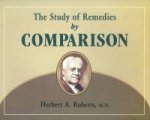
Study of Remedies by Comparison
5.34 € -17 % -

Dmt : the Spririt Molecule
14.63 € -18 % -
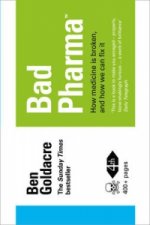
Bad Pharma
12.91 € -22 % -

Implantable Cardioverter - Defibrillators Step by Step - An Illustrated Guide
79.53 € -7 % -

How-to Manual for Pacemaker and ICD Devices - Procedures and Programming
110.21 € -

Oxford Handbook of Clinical Examination and Practical Skills
47.63 € -

Deep Medicine
26.44 € -16 % -

Tendon Regeneration
160.08 € -4 % -

Hydrogen Molecular Biology and Medicine
197.12 € -

Medical Laboratory Science Review
105.37 € -

Career Options in the Pharmaceutical and Biomedical Industry
56.31 € -10 % -

Immortal Life of Henrietta Lacks
12.30 € -6 % -

Plague
16.75 € -20 % -

Oxford Handbook of Clinical and Laboratory Investigation
50.56 € -

EHRA Book of Pacemaker, ICD, and CRT Troubleshooting
122.93 € -

Anatomic Localization for Needle EMG
71.45 € -

Rigor Mortis
14.73 € -22 % -

EHRA Book of Interventional Electrophysiology
123.94 € -

Fundamentals of Biostatistics
219.12 € -

Maria Treben's Cures
20.08 € -9 % -

Basic & Applied Concepts of Blood Banking and Transfusion Practices
94.37 € -5 % -

Politics of Evolution
65.50 € -

Science of Cooking
72.26 € -
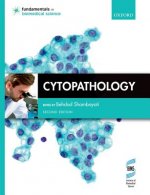
Cytopathology
73.37 € -

Manual of 3D Echocardiography
106.48 € -4 % -

Factories of Death
50.76 € -4 % -

Connecting Brain Research With Effective Teaching
59.54 € -

Making a Spinet by Traditional Methods
15.64 € -

Proteomics in Functional Genomics
239.51 € -

Histopathology
65.20 € -4 % -

Designing EEG Experiments for Studying the Brain
97.09 € -

Research in Medicine
54.40 € -

Practical Hemostasis and Thrombosis 3e
137.77 € -

Bergey's Manual of Systematic Bacteriology
490.34 € -

Research Methods in Human Skeletal Biology
93.26 € -

Comparative Physiology, Natural Animal Models And Clinical Medicine: Insights Into Clinical Medicine From Animal Adaptations
117.78 € -

Clinical Practice Manual for Pulmonary and Critical Care Medicine
97.39 € -

Pocket Evidence Based Medicine
53.59 € -4 % -

Bergey's Manual of Systematic Bacteriology
389.81 € -

Urodynamics
147.16 € -

Rehabilitation with rTMS
121.11 € -

Applied Longitudinal Data Analysis
186.42 € -
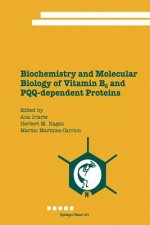
Biochemistry and Molecular Biology of Vitamin B6 and PQQ-dependent Proteins
185.21 € -

Aesthetic Laser Therapy
281.30 € -4 % -

Intraoperative Neuromonitoring
300.28 € -

Clinical Chemistry
121.11 € -

Research Methods in Biomechanics
116.57 € -10 % -

Molecular Diagnostic PCR Handbook
251.42 € -
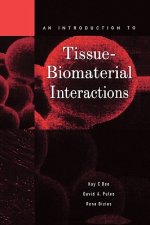
Introduction to Tissue-Biomaterial Interactions
214.08 €
Collection points Bratislava a 2642 dalších
Copyright ©2008-24 najlacnejsie-knihy.sk All rights reservedPrivacyCookies



 15549 collection points
15549 collection points Delivery 2.99 €
Delivery 2.99 € 02/210 210 99 (8-15.30h)
02/210 210 99 (8-15.30h)